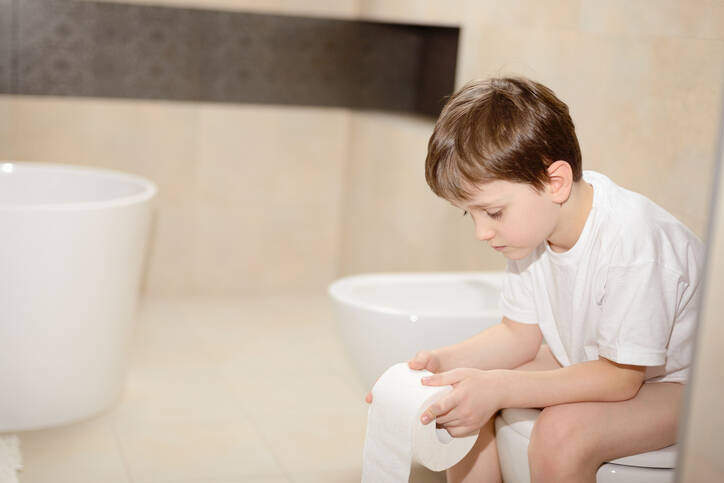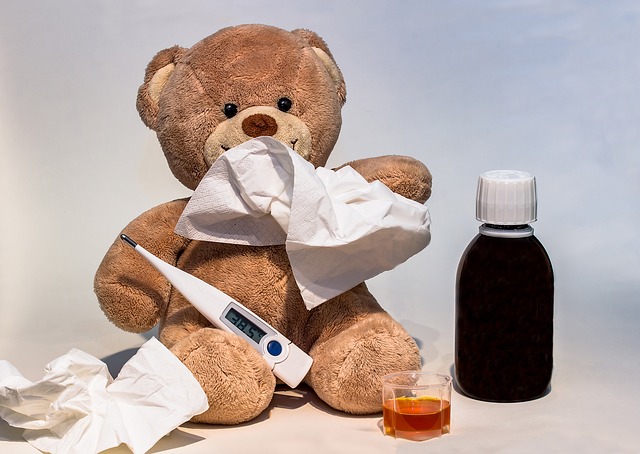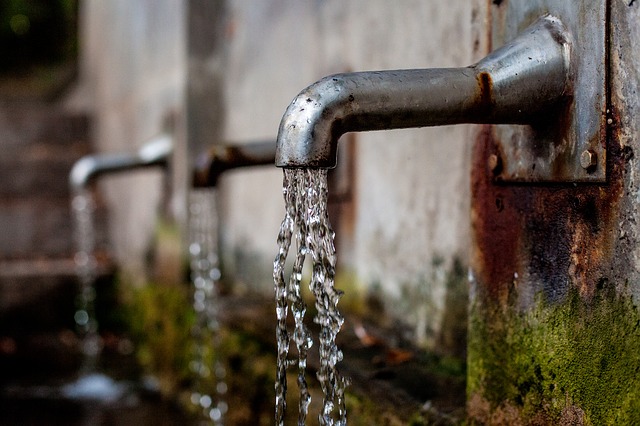How to stop diarrhea in children and what to do? (medication + diet)

Once again we are experiencing a period of viruses and seasonal illnesses. One complication of these days is diarrhoea. The causes of diarrhoea are manifold.
Article content
What should we know?
You ask:
How to manage and stop diarrhea in children and babies?
What medicines should be used?
What diet is suitable for diarrhea?
Diarrhea even without temperature?
It can be triggered by viruses, bacteria, parasites, overeating, for example.
It is often caused by food allergies or hypersensitivity to a food ingredient.
A child's body is sensitive to lack of fluids and with a higher loss, the child quickly becomes dehydrated. This can lead to complications in the child's health.
This article devotes lines to the theory of diarrhea and adds practical advice for coping.
What is diarrhea?
The definition of diarrhea is easy to remember.
All it takes is 3-5 runny or watery stools in one day, and the diagnosis is made.
Remember that when diarrhea occurs in children, dehydration occurs quickly.
+
Dehydration is one of its serious complications.
Diarrhoea associated with a complicated course is the most common cause of death among children in developing countries.
Causes of diarrhoea
The main causes include:
- Infections
- viral (Rotavirus)
- bacterial (Shigella, Salmonella, E. Coli)
- parasitic (Giardiasis, Microsporidia)
- fungal (Candida)
- Malabsorptive conditions in diseases such as celiac disease, cystic fibrosis
- Inflammation of the digestive tract (e.g. liver disease, Crohn's disease, Colitis ulcerosa)
- dysmicrobia after antibiotic treatment
- use of laxatives
- enzyme deficiencies such as lactose intolerance (milk sugar)
- irritable bowel syndrome
- stress and other psychological disorders
- overeating
- traveler's diarrhea (change of diet, water contamination, food contamination)
Acute or chronic diarrhoea
Diarrhoea is divided into acute and chronic, according to its duration.
Acute diarrhoea occurs suddenly and lasts for a short time, less than 4 weeks.
Chronic diarrhoea persists for more than 4 weeks.
Read also the articles:
Our health in summer - sun, heat, injuries and illness
Summer diarrhoea
Contamination and spoiled food in summer
Diet for diarrhoea, constipation or vomiting
Attention: The necessity of examination
Diarrhoea can occur acutely and without complications. In addition to the duration of diarrhoea, accompanying symptoms and complications should be noted. Especially in children under one year of age.

It is important to remember to seek professional help as soon as:
- body temperature rises above 38 °C and persists for more than 24 hours
- severe abdominal pain is associated
- the child has a distended or hard abdomen
- it lasts for more than 3 days
- diarrhoea in children younger than 1 year
- yellow discolouration of the skin
- stools are bloody, the colour of the stools is black or tarry
- reduced urine output, dark urine (colour like cola, black beer in infectious liver diseases)
- loss of most of the water content
- is the cause of a reaction to medication
- association of nausea, vomiting (more than 12 hours)
- if the child vomits yellow-green, bloody contents
- sudden weight loss
- in children up to about 18 months, a collapse of the fontanelle may be noticed
- decrease in skin tension (turgor)
- rapid pulse
- cold sweat
- fatigue, weakness, lethargy, apathy, sleepiness
Complications on behalf of dehydration
Dehydration is one of the most serious complications of diarrhea. It threatens the child's health and life.
If the child refuses to take fluids for more than 3 hours, vomiting, increased body temperature and decreased urine output are associated.
Caution.
It is best to have a professional examination!
This will prevent the child's health from deteriorating.
Symptoms of dehydration:
- Increased sleepiness, drowsiness
- lethargy, apathy
- impaired consciousness, unconsciousness
- Disorientation
- irregular breathing
- decreased urination, dark-coloured urine
- dizziness, fainting to collapse
- distended abdomen
- cyanosis (blue-purple colouration of lips, fingertips)
- decreased skin tension, in young children, prolapse of fontanelles
- dry mouth
- weight loss
- body cramps
Do you know how to manage diarrhea in children?
In the following lines, we will offer you solutions on how to manage diarrhea.

The most important step is to replenish lost fluids.
Rehydration is to replenish minerals in addition to fluid.
Give plain water or unsweetened mineral water by the spoonful and in small sips.
With good tolerance and absence of vomiting, the volume of fluids can be increased.
Unflavoured rooibos tea or vilcacora tea is suitable.
The teas can be sweetened with sugar, honey and a pinch of salt can be added to replace lost salts. Fennel and chamomile tea is also recommended. Diluted carrot or fruit unsweetened juice (juiced at home) is not a mistake.
A diet is also needed when drinking beverages.
Sweetened and carbonated drinks (such as cola and similar), artificially sweetened fruit juices should not be given.
Black tea is also not suitable, it irritates the mucous membrane and contains theine (chemically the same substance as caffeine).
Natural fruits such as blueberries and blackcurrants are welcome in diarrhoea. Raw, from the freezer, in dried form, slightly overcooked as unsweetened compote or in juice form.
Also include biscuits, rice, applesauce (but unsweetened) and banana in the diet.
Peas, carrots, potatoes, pasta, but preferably wholemeal, may be included in the diet at a later stage. Porridge is also recommended. Poultry broth, beef stew, bread, but not fresh.
Legumes (beans, lentils), fatty foods, fresh baked goods, candy, ice cream, salty bars, potato chips should be avoided. Apricots and peaches are also not recommended.
For breastfed babies, it is essential to continue breastfeeding.
In breast milk they get all the necessary substances and also fluids. You can add baby water. Nowadays you can buy water that does not need to be boiled.
For babies who are fed on artificial milk, it is advisable to dilute the dried preparations at a higher rate. At the classic dose of 3 scoops per 90 ml of water, you give only one scoop. Later, two scoops per 90 ml, and after the difficulty subsides, you give the normal dose.
For the proper functioning of the intestinal microflora, it is advisable to give probiotics from the beginning of the trouble.
Probiotics can be bought in the pharmacy as artificial preparations. They can also be found in the form of fresh yoghurt, kefir, acidophilus milk, in bryndza. Probiotic culture can also be found in sauerkraut and brewer's yeast.
Look for probiotics containing:
Saccharomyces boulardii
Lactobacillus acidophilus
Escherichia coli
Bifidobacterium
Enterococcus faecium
A sufficient dose of bacteria in a probiotic should be:
2-10 billion
And twice a day.
Remember that the dietary regimen should be maintained even after the difficulties have subsided.
At least as long a dietary regimen as the duration of the diarrhea is recommended (at least 5 days for prolonged diarrhea).
If the diet is broken, you risk a return of the problem. The intestinal tract needs to rest and the intestinal microflora needs to recover.
Prevention is also important
Diarrhoea is not always completely avoidable.
Nowadays, aggressive viruses can overwhelm even the hardiest individuals. But there are a few important things you should remember and look out for.
How effective prevention will help:
- Hand washing, teach your children to wash their hands regularly and thoroughly. Especially before eating and after using the toilet.
- wash fruits and vegetables
- keep kitchen surfaces clean
- also keep the bathroom and toilet clean
- avoid eating spoiled food
- defrost meat quickly and cook it sufficiently and immediately after defrosting
- beware of water from unknown sources (streams, rivers, lakes), drink only bottled water on holiday
- avoid eating food prepared on the street during holiday walks in risky destinations
- use antibiotics only if necessary - risk of antibiotic resistance
- a child with diarrhoea should stay at home to avoid spreading
What to buy for diarrhea at the pharmacy?
In the pharmacy, they can recommend you suitable preparations for diarrhea. In addition to the already mentioned teas, you can also buy a rehydrating preparation, a probiotic.
Charcoal is also useful for diarrhea. However, because of its ability to stain the stool black, it can mask the presence of blood in the stool.
Video on managing diarrhea in children










